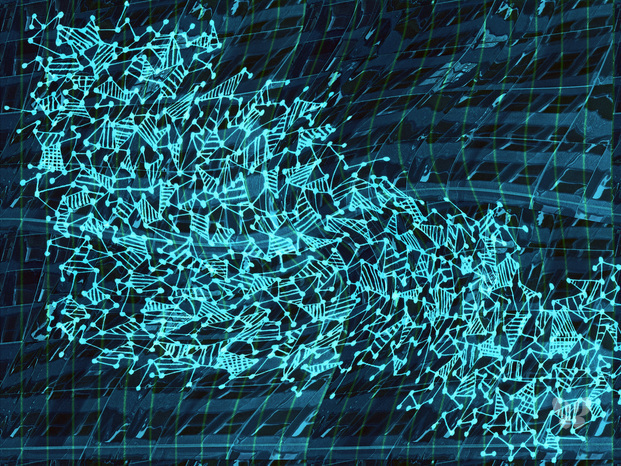USA, Music, 1963
Frederic
Rzewski
Frederic Rzewski (born 1938 in Westfield, US; died 2021 in Montiano, Italy) was only twenty-five years old when he arrived in Berlin in 1963 to begin his fellowship. He had, however, already made a name for himself internationally as a pianist, among other things with his interpretations of Karlheinz Stockhausen’s piano pieces. He was also regarded as a gifted improviser and incorporated such elements into his compositions. Composer Dieter Schnebel recalled the young artist in a foreword to a publication of Rzewski’s writings: “I don’t remember exactly when and where I first met Frederic. In Palermo in 1963? In any case, he premiered Espressivo, my musical drama for one piano player, at the Werkraumtheater in Munich in 1964. He was young, had wild hair, and a beard! […] The performance was powerful, impressive—and shocking. He was a great performer and a highly virtuoso pianist right from the start.”
Up until the 1960s, Rzewski had composed primarily for his own instrument, the piano. The Berlin fellowship allowed him to focus on composing works for other instruments. In his Requiem, which he completed provisionally in 1963 and then revised in 1967, the piano again played an important role. However, a narrator, a male choir, and unusual percussion instruments such as Jew’s harps, tubular bells, and bullroarers were also used. During his fellowship he also wrote the pieces Nature Morte for small orchestra (1964) and Speculum Dianæ for eight improvising musicians (1964).
Rzewski, born in the US the son of Polish immigrants, began playing the piano at the age of five and developed his first compositions as a child. When he was ten, he discovered the works of Shostakovich and Schönberg in a record shop close to his piano teacher’s apartment—and with them his love for contemporary music. This led him, at the age of just eighteen, to the Darmstadt International Summer Course for New Music in 1956, where he met young composers such as Christian Wolff, Karlheinz Stockhausen, Pierre Boulez, and Luigi Nono. His curiosity for the latest trends also took him to New York to John Cage and Morton Feldman. While still a student at Harvard and Princeton, he began to earn a living as a pianist. In 1960, a fellowship brought him back to Europe again, where he continued his studies in Italy with Luigi Dallapiccola.
By the time Rzewski arrived in Berlin in 1963, the city had been stringently divided for two years by a heavily guarded border and a wall. As an American citizen, however, both sides of the city were open to him. At an electronic music congress in the summer of 1964, Rzewski met GDR-resident Gerhard Steinke who offered him the opportunity to compose a work at an electronic studio in Adlershof. Curiously, the studio was named the Labor für Akustisch-Musikalische Grenzprobleme (Lab for Acoustic-Musical Border Problems), and border problems were also what delayed this collaboration. Rzewski was not able to start working in Adlershof until August 1965 due to communicational difficulties between eastern and western parts of the city. He had access there to a special electronic musical instrument: the subharchord. In 1965, this “GDR synthesizer” was considered a technical marvel that offered entirely new sonic possibilities. Being able to work with it was a great opportunity for Rzewski. He spent a hundred and thirty hours in the Labor in order to complete his twenty-three-minute-long composition entitled Zoologischer Garten—a pioneeringly short time for such a project in the days of tape machines, oscillators, and smoke generators. In the work, Frederic Rzewski reflected on his impressions of the divided city, as revealed in a 1966 text he wrote on the genesis of the piece: “The border crossing on Friedrichstrasse could take […] minutes or even more than an hour. The time I spent in the S-Bahn, and even more so getting on and off at Bahnhof Zoo, must have imprinted on my consciousness a certain sensation of duration and change, which, as I now see, has become the de facto material of my composition.”
Zoologischer Garten was actually supposed to be broadcast on the radio in February 1966, but political upheavals resulted in electronic music falling out of favor in the GDR. Rzewski’s electronic composition was not performed in public at first and slipped between the cracks until well after the fall of the Wall, before receiving late recognition within the context of the subharchord’s rediscovery in 2007.
Text: Friederike Kenneweg
Translation: Erik Smith



